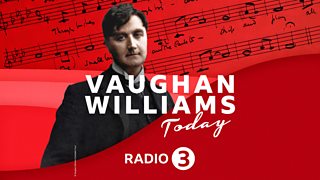
Practical Improvements
Donald Macleod explores Richard Strauss’s rather fraught early years as third conductor at the Munich Opera, with music including his orchestral tone poem Tod und Verklarung.
Donald Macleod explores Richard Strauss’s rather fraught early years as third conductor at the Munich Opera, with music including his orchestral tone poem Tod und Verklärung.
During Richard Strauss’s lifetime the sound and form of music altered radically. He was born at the tail end of the 19th century and saw the emergence of twelve-tone music and atonality from younger composers like Arnold Schoenberg and his pupil Alban Berg. Strauss belonged to a previous generation and his music came to be regarded as conservative in style, but at the start of his career, Strauss had been seen as something of a modernist, breaking the mould with his series of innovative orchestral tone poems, and with the dissonant sound world of operas such as Salome and Elektra.
This week Donald Macleod follows the young Strauss’s pathway leading up to and including the tone poems, seeing how an immersion in music across his formative years influenced his ideas about orchestral writing, as well as opening up opportunities that helped him to establish a professional career as a conductor.
Following a hasty departure by his boss, Hans von Bülow, in 1886 Strauss left his position at Meiningen to join Munich Court Opera. The experience proved to be a steep learning curve.
5 piano pieces op 3
IV: Allegro
Glenn Gould, piano
Serenade in E flat op 7 for 13 wind instruments
Sabine Meyer Wind Ensemble
Piano Quartet in C minor op 13 TrV 137
IV: Finale Vivace
Michael Stepniak, viola
Mendelssohn Piano Trio
Tod und Verklärung, Op. 24 TrV 158
Bavarian Radio Symphony Orchestra
Maris Janssons, director
Morgen! op 27
Jessye Norman, soprano
Leipzig Gewandhaus
Kurt Masur, conductor
Last on
Music Played
-
![]()
Richard Strauss
5 Piano Pieces, Op 3 (No 4, Allegro)
Performer: Glenn Gould.- SONY : G010003293094U.
- SONY.
- 5.
-
![]()
Richard Strauss
Serenade in E flat major, Op 7 for 13 wind instruments
Ensemble: Bläserensemble Sabine Meyer.- AVIE MUSIC : AVI553014.
- AVIE MUSIC.
- 1.
-
![]()
Richard Strauss
Piano Quartet in C minor, Op 13 (4th mvt)
Performer: Michael Stepniak. Ensemble: Mendelssohn Piano Trio.- CENTAUR : CRC-2718.
- CENTAUR.
- 12.
-
![]()
Richard Strauss
Tod und Verklarung, Op 24
Orchestra: Bavarian R S O. Conductor: Mariss Jansons.- BR Klassik : 900148.
- BR Klassik.
- 23.
-
![]()
Richard Strauss
Morgen! Op 27
Singer: Jessye Norman. Orchestra: Gewandhausorchester Leipzig. Conductor: Kurt Masur.- PHILIPS : 475-850 7.
- PHILIPS.
- 11.
Broadcasts
- Wed 3 Mar 2021 12:00�������� Radio 3
- Wed 23 Mar 2022 12:00�������� Radio 3
Vaughan Williams Today
Beethoven Unleashed – the box set
What was really wrong with Beethoven?
Composers A to Z
Who knew? Five eye-opening stories from Composer of the Week
Five reasons why we love Parry's Jerusalem
What is the strange power of Jerusalem which makes strong men weep?
A man out of time – why Parry's music and ideas were at odds with his image...
The composer of Jerusalem was very far from the conservative figure his image suggests.
Composer Help Page
Find resources and contacts for composers from within the classical music industry.






